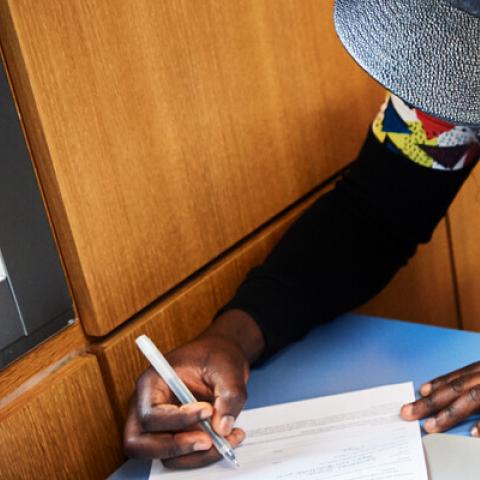
Sidebar navigation

Getting the most out of seminars
Explore how to work together in seminars and improve your notes
Seminar discussions and working with your peers develops your subject understanding, communication skills and critical thinking. Learn how to get the most out of your group discussions here.
Seminars are group discussions where your tutor or lecturer plans the theme. These are excellent learning opportunities. It's normally the lecturer’s job to share the goals of the discussion, arrange practicalities like seating and introductions, steer the discussion and to bring the seminar to a close.
Although lecturer's oversee your discussion, how much you get out of the seminar often relies on you and your peers. You need to be prepared for seminar discussions and willing to participate, and so does everyone in your group. The discussion has been set up for your benefit so try to make the most of the opportunity.
Preparation
You'll usually be asked to prepare for a seminar. Your lecturer will explain what you need to do and assign you some reading. Try to finish your reading in plenty of time rather than rushing through the text just before your seminar starts. Preparing properly means you'll be able to contribute to the discussion and benefit fully from the class.
Highlight key points in the text while you read and write down any questions you have. Bring your notes to your seminar and mark key sections so you can find them quickly.
If you haven't been able to prepare for a seminar you should still attend. You'll benefit from being there and hearing what other people have to say.
Consider studying additional sources on your seminar topic, especially if the subject is important to you or will be central to your assessments. Your course reading list can help you get started. Some students hold pre-discussions with peers before a seminar to clarify their thinking and go over the text, especially for an important topic.
Participating in discussion
Taking part in seminar discussions can boost your learning and improve your subject understanding. Read our advice below for getting the most out of your seminars and encouraging inclusive discussions.
5 tips for getting the most out of seminar discussions:
- Speak to everyone in the group. Make eye contact with other students and not just with your lecturer.
- Speak slowly and clearly. If you find it difficult to express your point try noting down your questions during the discussion. Others can ask you to clarify your point as part of the discussion too, so you don't need to be perfect first time.
- Listen actively and interact with the person speaking. Look at the person speaking and smile or nod at appropriate times, or check that you've understood their point with phrases like, “So what you’re saying is…”, or “So in your opinion…”. Consider what others are saying rather than using their speaking time to plan your next contribution.
- Be positive about others’ contributions. You can be positive even if you disagree with a point. Do this by acknowledging the speaker’s views before stating your own, for example: “I can see what you mean, but…” or “I understand what makes you think that, but I would argue that…”
- Be open to changing your opinion. You views may develop and change as you hear from others. If you change your mind or realise you were mistaken about a point, admit it. If someone else's opinion helped change yours, thank them for it. This honest, open attitude will help develop motivation and trust in the group.
Overcoming shyness
You may struggle to contribute fully to a discussion if you're shy. Try building your confidence by:
- setting short, manageable targets – for example, making one contribution to a discussion
- planning your contributions before the seminar – consider writing down your responses after you've read the text for the discussion
- let your group leader know you have something to say – catch the eye of your group leader or consider a more formal method of letting them know like slightly raising your hand
It could feel like your peers are more confident or knowledgable about your subject than you feel at first, or that they're just waiting for you to show yourself up. Most students will feel the same and be nervous around new people too. Seminars are a great opportunity to explore your subject with peers and get to know others in your class in a supportive environment. Don't be afraid to speak up and contribute to the discussion.
Download our revision sheet for getting the most out of seminars
Download this page as a PDF for your seminar revision notes.



